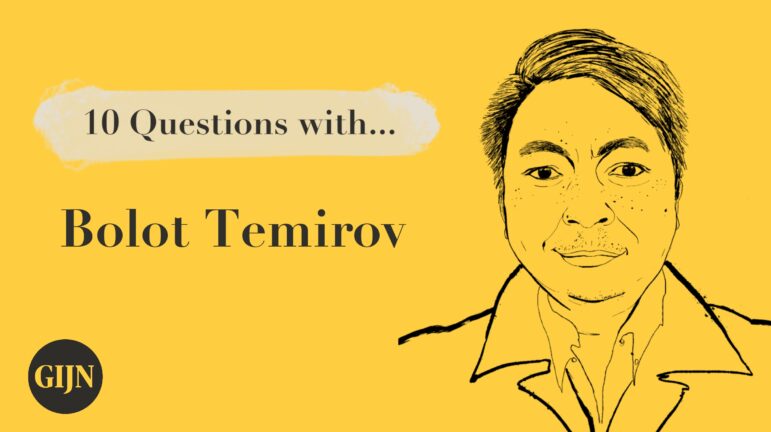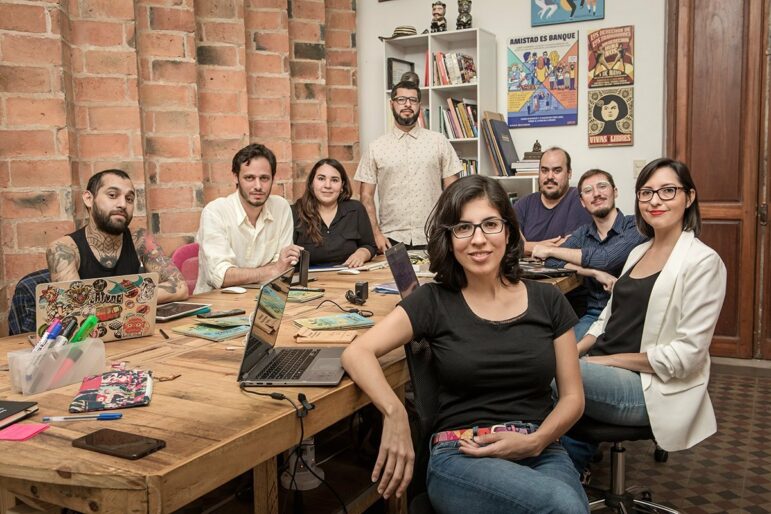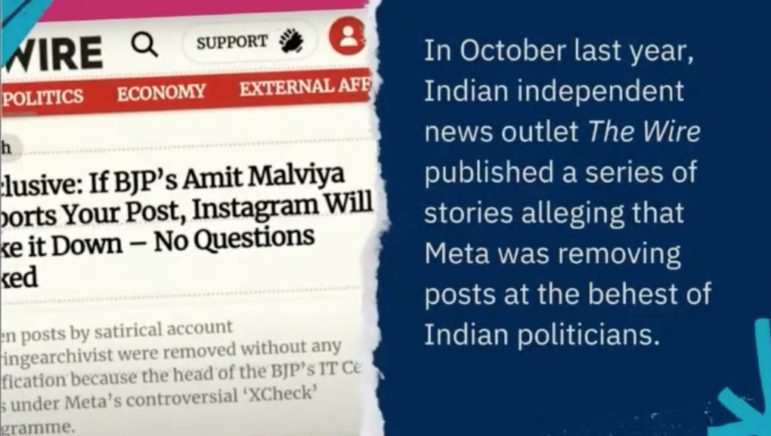
10 Questions
Despite Detention and Forced Deportation, Still Investigating High-Level Corruption in Kyrgyzstan
Bolot Temirov has led fact-checking and investigative journalism efforts to uncover high-level corruption inside Kyrgyzstan.

Bolot Temirov has led fact-checking and investigative journalism efforts to uncover high-level corruption inside Kyrgyzstan.

A lot of academic research exists behind paywalls. The Journalist’s Resource outlines eight ways reporters can get free access to high-quality scholarship.

GIJN member El Surtidor is a Paraguayan news organization created in 2015 that prioritizes innovation and multi-platform, visual journalism.

For GIJN’s My Favorite Tools series we spoke with Brazilian journalist Tai Nalon, executive director and co-founder of the fact-checking website Aos Fatos, who now leads an award-winning reporting team of nearly 20 people.

At the 2023 NICAR conference, GIJN talked with several data journalism experts and learned 10 simple data journalism errors to avoid that could ruin your investigation.

When news outlets report that new research studies prove something, they’re almost certainly wrong. They find evidence — sometimes, extraordinarily strong evidence. It’s important journalists understand that science is an ongoing process of collecting and interrogating evidence, with each new discovery building on or raising questions about earlier discoveries.

A recent Reuters Institute webinar dug into a highly embarrassing, retracted investigation by India’s The Wire and also laid out best practices for investigative newsrooms to avoid both deliberate and unintentional source errors.

A website and Telegram channel operated from Russia falsely claims to be a fact-checking site and, in fact, is repeatedly pushing out Russian disinformation about the war.
Gaëlle Faure edits stories about misinformation written by digital investigative and verification reporters based in Agence France-Presse’s bureaus in Africa, and also works on fact-check training for journalists around the world. In this interview, she speaks about her job at AFP and about the challenges that misinformation poses to journalists around the world.

CORRECTIV boasts a €4 million annual budget, a staff of 60, and has become one of the world’s largest nonprofit centers for investigative journalism. As founder David Schraven had hoped, the outlet has delivered blockbuster investigations and trained aspiring journalists, as well as staged plays and exhibitions inspired by current affairs that serve to bridge the gap between art and news.